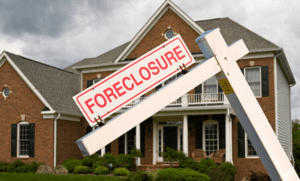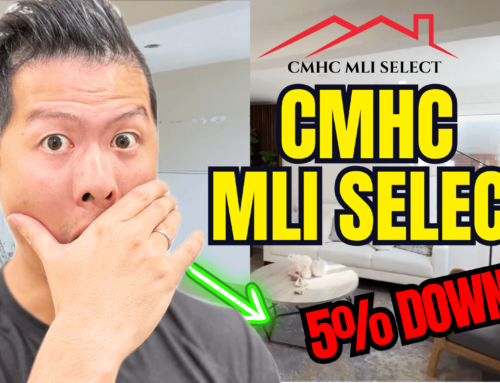For our audio-visual learners, here’s a 4-minute, bite-sized explanation of Foreclosure and Power of Sale.
When dealing with rental properties or any property for that matter, it’s important to have a good understanding of foreclosure and power of sale. Inflation, rising interest rates, and increasing living costs can lead to a surge in mortgage payment defaults, which can trigger foreclosure and power of sale proceedings. Unfortunately, increased interest rates can create barriers to homeownership, increasing the demand for rental properties. As a result, rent prices have gone up significantly in Ontario (+6.9%), British Columbia (+8.6%), and Quebec (+6.8%), contributing to a 7.7% increase year over year to rent prices in Canada. These financial constraints can consequently trigger foreclosure and power of sale proceedings.
What is Foreclosure?
In Ontario, foreclosure is a legal procedure that lenders initiate when a homeowner or borrower defaults on property payments. The lender pursues the sale of the property to recoup outstanding debts, adhering to specific timelines and legal prerequisites for completion.
 For instance, let’s take the case of Vanessa Hartmann, a driven and educated woman from Ottawa who embarked on the journey of homeownership of a lovely home in Jasper, Ontario. She paid $200,000 over the asking price of a property listed at $465,000, but unfortunately lost her job, coinciding with a sharp rise in interest rates that nearly doubled her mortgage burden. She started defaulting on her payments and attempted to sell her house through two different realtors but to no avail. Eventually, she moved out and reluctantly handed over the keys to Scotiabank, which eventually served Hartmann foreclosure papers a few months later.
For instance, let’s take the case of Vanessa Hartmann, a driven and educated woman from Ottawa who embarked on the journey of homeownership of a lovely home in Jasper, Ontario. She paid $200,000 over the asking price of a property listed at $465,000, but unfortunately lost her job, coinciding with a sharp rise in interest rates that nearly doubled her mortgage burden. She started defaulting on her payments and attempted to sell her house through two different realtors but to no avail. Eventually, she moved out and reluctantly handed over the keys to Scotiabank, which eventually served Hartmann foreclosure papers a few months later.
The Court System
The next step typically involves the court system where the lender files a statement of claim, initiating the process. Subsequently, the homeowner responds, allowing both parties to present their perspectives and explain the circumstances leading to the situation. Typically, these contracts are ironclad, leaving little room for justifiable default unless there are unethical clauses, which are rare, especially with institutional banks. Following deliberations, the court issues a judgment, potentially resulting in the sale of the property if the debt remains unpaid.
Hartmann couldn’t afford legal representation and didn’t qualify for legal aid. So, she couldn’t plead her case, and now she awaits a default judgment. As a result, bankruptcy looms over her head, and she worries about becoming homeless. She hopes her story will serve as a cautionary tale to others, warning that anyone, regardless of their education or work ethic, could find themselves in a similar situation.
What is Power of Sale?
Power of sale, on the other hand, enables lenders to sell a property without completing the entire court process, adhering to legal requirements outlined by the Mortgage Act. This mandates providing proper notice and time frames for the homeowner to remedy the given situation.
If you find yourself in this predicament, take notices seriously. Lenders may redirect rental property income toward mortgage payments if you’ve defaulted. They might also assess the property’s value and consider selling to recover the loss of funds. Therefore, it’s essential to avoid unnecessary power of sale proceedings for your properties.
Redemption Period
Ontario offers a standard redemption period for foreclosure proceedings, enabling homeowners to settle outstanding debts and other associated fees. Successfully repaying these obligations allows property owners the opportunity to reclaim their property and to resolve these issues. However, failure to repay the debts during this period ultimately results in the sale of the property to recover the debts owed.
Buying a Foreclosed Property
Buying a foreclosed property offers unique opportunities and challenges that require careful consideration. Prospective buyers must exercise extreme diligence by examining factors such as property title, existing debts, and the condition of the property through inspections. Previous homeowners may have neglected foreclosed properties due to personal financial difficulties, necessitating additional funds for potential repairs. Therefore, buyers must secure financing and ensure they have reserve funds available for any necessary property improvements.
As the economic sphere becomes more constraining for homeowners, the Canadian Mortgage and Housing Corporation sends its warning regarding foreclosures and power of sale. Stories like Hartmann’s are becoming more common as a result of rising interest rates and historically high levels of household debt. Understanding the two concepts can help homeowners avoid financial difficulties and make informed decisions when buying a property.
Start Your Investing Journey
Are you interested in real estate investing? Are you struggling with the high barriers to entry to the Canadian real estate market? Join us now and see how we can help you acquire your first US real estate deal in the next 45 days!
Fill out the application form below and take the first step towards expanding your investment portfolio across the border.




